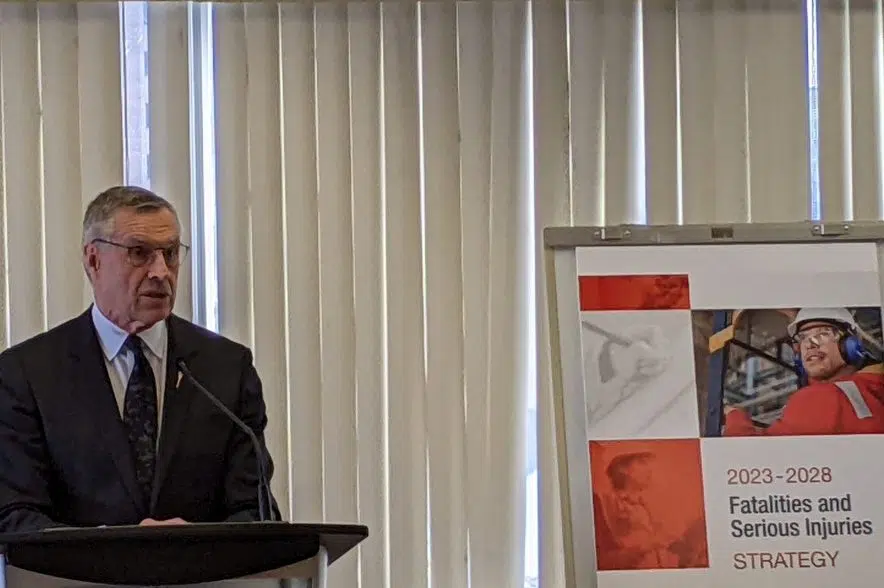The only acceptable number is zero.
That’s what Saskatchewan Minister of Labour Relations and Workplace Safety Don Morgan wants to see when it comes to the number of injuries and deaths in the workplace.
On Monday, the province in co-operation with the Saskatchewan Workers’ Compensation Board unveiled a new plan aimed at attempting to reduce those numbers.
It’s the second time in the last three years the province has released a plan like this.
In 2019, the province released a plan targeted at eliminating injuries and deaths in the workplace. While it saw some success, the province says the numbers were misleading, as many people were forced to stay home because of the COVID-19 pandemic.
“Over the last few years we’ve had COVID, which has driven the numbers down. People weren’t driving and weren’t going out as much,” explained Morgan. “There was sort of an appearance that we’re gaining ground, but the reality of it is that we weren’t.
“Now that people are out doing things, our numbers are back where they were pre-COVID and we know that we have to have a strategy like this to continue to move things down.”
The province says approximately 2,400 Saskatchewan workers are seriously injured on the job every year.
This time around with the province updating its strategy, Morgan says there are a couple main areas the government would like to focus on to make sure employers are getting the message.
“This is a continuation of a lot of the things that we’re working on. This will focus on the areas that we knew had the highest injury rate. We want to focus on education, training, making workers aware of what their rights are and doing everything we can on the enforcement and education side,” Morgan stated.
Three sectors have been identified as the areas where the province needs to focus the most. Those include health care, construction and transportation.
Injuries most prevalent in transportation include things like collisions. In health care, workers are injured by slipping, falling and lifting items that are too heavy. Many construction injuries deal with some not harnessing up enough and falling from platforms.
While many physical injuries happen in the workplace, some don’t always show on the outside. This time around, the province says it’s taking a stronger approach when it comes to dealing with mental health and psychological issues.
“There’s a larger number of those that didn’t exist before because those are now covered and reported injuries,” Morgan said. “I’m glad for the sake of those workers that they’re covered.”
According to the workers’ compensation board, new rules were put in place in 2016 to make it easier for people submit mental health claims.
Sean Tucker, an occupational health and safety professor at the University of Regina, was consulted as the province created this plan. He feels addressing mental health issues was necessary.
“Over the years, the workers’ compensation board policies have evolved in terms of adjudicating psychological injury claims. With those changes, we’re having more of those injuries accepted now and reflected in claims,” Tucker explained.
“There’s a cost now obviously to the workers suffering from a psychological injury, but also to employers with premiums going up. We need to take that energy that we dedicate to preventing physical injuries and focus on the psychological injuries as well.”
When it comes to people missing time due to mental health issues, Saskatchewan’s Workers’ Compensation Board says the average time is 69 to 70 days.







